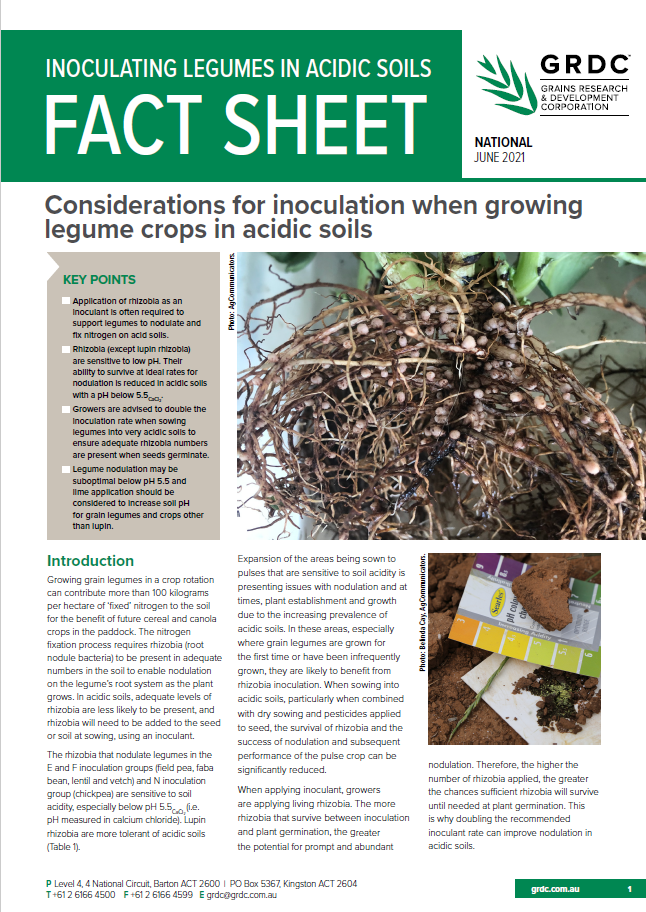Inoculating legumes in acidic soils fact sheet
Inoculating legumes in acidic soils fact sheet
Published: 02 Aug 2021
Growing grain legumes in a crop rotation can contribute more than 100 kilograms per hectare of ‘fixed’ nitrogen to the soil for the benefit of future cereal and canola crops in the paddock. The nitrogen fixation process requires rhizobia (root nodule bacteria) to be present in adequate numbers in the soil to enable nodulation on the legume’s root system as the plant grows. In acidic soils, adequate levels of rhizobia are less likely to be present, and rhizobia will need to be added to the seed or soil at sowing, using an inoculant.
Key points
- Application of rhizobia as an inoculant is often required to support legumes to nodulate and fix nitrogen on acid soils.
- Rhizobia (except lupin rhizobia) are sensitive to low pH. Their ability to survive at ideal rates for nodulation is reduced in acidic soil with a pH below 5.5CaCl2.
- Growers are advised to double the inoculation rate when sowing legumes into very acidic soils to ensure adequate rhizobia numbers are present when seeds germinate.
- Legume nodulation may be suboptimal below pH 5.5 and lime application should be considered to increase soil pH for grain legumes and crops other than lupin.
Download PDF
Region: National
GRDC Project Code: MSF1806-002SAX,

